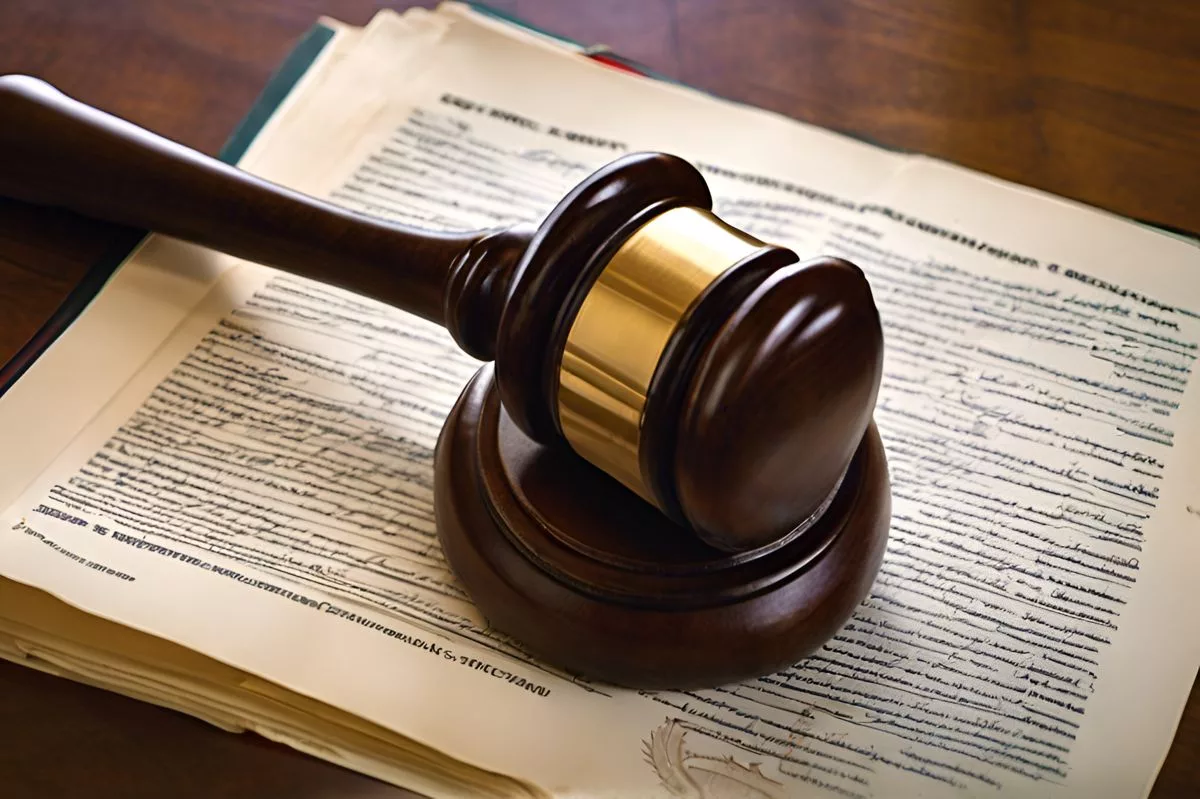The Western Cape High Court has rejected Judge John Hlophe’s request to halt the National Assembly’s proceedings for his dismissal, marking a critical moment in the feud between legislative power and judicial autonomy in South Africa. Hlophe had argued that the Assembly’s proceedings went against the principle of separation of powers and did not meet constitutional standards. However, the court upheld the Assembly’s responsibility to execute its duties and the importance of avoiding interference in constitutional processes. The ruling serves as a reminder of democracy’s ongoing nature and the need for active participation from all sectors of society.
A Legal Landmark for South Africa
The Western Cape High Court has ruled against Judge John Hlophe’s urgent request to halt the National Assembly’s proceedings that sought his dismissal. This event serves as a pivotal point in the ongoing feud between legislative power and judicial autonomy, highlighting the principle of the separation of powers.
A Legal Landmark for South Africa
In an unexpected turn of events within South Africa’s legal and political terrain, the Western Cape High Court has ruled against Judge John Hlophe’s urgent request to halt the National Assembly’s proceedings that sought his dismissal. This event serves as a pivotal point in the ongoing feud between legislative power and judicial autonomy, highlighting the principle of the separation of powers.
Judge Hlophe’s Attempt to Halt Dismissal
The situation got a twist when Judge Hlophe, in an effort to stop his removal from his post, brought Section 177 of the Constitution into play. Hlophe went to the High Court seeking an injunction against the National Assembly’s vote on his removal, while he waited for a direct appeal to the Constitutional Court. His petition was audacious, questioning the legislative body’s adherence to the constitutional mandate for rules that govern the impeachment or removal of judges.
Hlophe’s defense before the High Court had two facets. He first argued that the National Assembly’s choice to move forward with a vote on his removal, despite his appeal to the Constitutional Court, went against both judicial autonomy and the doctrine of separation of powers. Secondly, he insisted that the approaching vote did not match the constitutional standard set out in Section 165, which is in place to protect and support court independence, impartiality, and dignity.
The High Court’s Response and Ruling
In retort, the Speaker argued that courts should only interfere in the affairs of a separate government branch under unique circumstances, a principle fundamental to the separation of powers. The Speaker further argued that Hlophe’s urgent application did not warrant such a dramatic step. Besides, the Speaker contested the urgency of the interdict application, branding it as self-imposed, given that Judge Hlophe had been aware of the impending vote since December 2023.
In a clear endorsement of the National Assembly’s position, the High Court upheld the House’s responsibility to carry out its duties unless explicitly told otherwise by a court. The court highlighted the undesirability of stopping a constitutional process and meddling with National Assembly procedures given the current circumstances. It also acknowledged that Judge Hlophe, a seasoned lawyer, would comprehend the legal requirements for an urgent interdict. The court finally decided that his application fell short of these strict requisites.
Aftermath of the Ruling
As a result, the urgent interdict application was taken off the roll, with each party left to bear its own legal costs. Undaunted by this defeat, Parliament continues to oppose Judge Hlophe’s Constitutional Court application and is getting ready to draft its rebuttal.
As the turmoil from this legal battle subsides, the National Assembly proceeds with its review of the reports on both Judge Motata and Hlophe. These cases involve serious accusations of misconduct. Specifically, Judge Hlophe stands accused of trying to sway the Constitutional Court’s decision in 2008 on the Thint/Zuma matters involving ex-President Jacob Zuma. Simultaneously, Retired Judge Motata was found guilty of drunk driving in 2009.
Reflection on the Legal Battle
This progression ultimately highlights the inherent strains between the distinct branches of the government and the careful equilibrium needed to uphold the doctrine of separation of powers. A substantial lesson from this episode is the emphatic validation of the National Assembly’s constitutional obligations, serving as a reminder that democracy is not a solitary event but an ongoing process demanding active involvement from every segment of society.
1. What was Judge John Hlophe’s request to the Western Cape High Court?
Judge John Hlophe’s request to the Western Cape High Court was to halt the National Assembly’s proceedings for his dismissal.
2. What was Judge Hlophe’s argument against the National Assembly’s proceedings?
Judge Hlophe argued that the Assembly’s proceedings went against the principle of separation of powers and did not meet constitutional standards.
3. What is the significance of the High Court’s ruling?
The High Court’s ruling serves as a reminder of democracy’s ongoing nature and the need for active participation from all sectors of society. It highlights the principle of the separation of powers and the importance of avoiding interference in constitutional processes.
4. What were the arguments made by Judge Hlophe in his defense before the High Court?
Judge Hlophe argued that the National Assembly’s choice to move forward with a vote on his removal, despite his appeal to the Constitutional Court, went against both judicial autonomy and the doctrine of separation of powers. Secondly, he insisted that the approaching vote did not match the constitutional standard set out in Section 165.
5. What was the High Court’s response to Judge Hlophe’s defense and arguments?
The High Court upheld the House’s responsibility to carry out its duties unless explicitly told otherwise by a court. It highlighted the undesirability of stopping a constitutional process and meddling with National Assembly procedures given the current circumstances. The court finally decided that his application fell short of the strict requisites for an urgent interdict.
6. What is the aftermath of the ruling and what lesson can be learned from this episode?
The urgent interdict application was taken off the roll, with each party left to bear its own legal costs. Parliament continues to oppose Judge Hlophe’s Constitutional Court application and is getting ready to draft its rebuttal. The lesson from this episode is the emphatic validation of the National Assembly’s constitutional obligations, serving as a reminder that democracy is not a solitary event but an ongoing process demanding active involvement from every segment of society.










